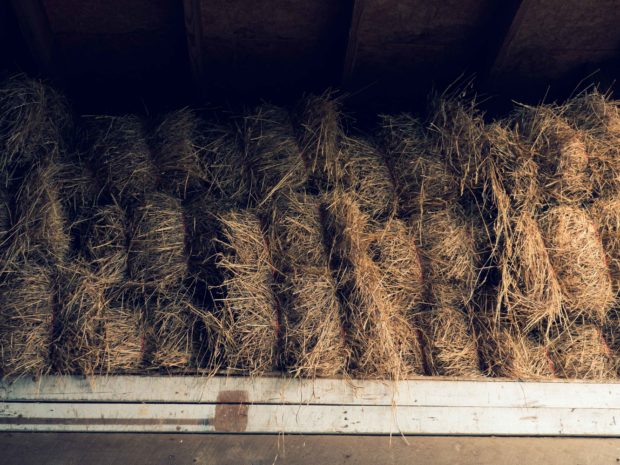You have no items in your cart. Want to get some nice things?
Go shopping
One black-and-white snapshot shows me smiling slightly, lolling on Fan’s stone step, cowboy hat askew, uncontrolled blonde curls spilling out. The entry porch, thick with winter coats resting for the summer, smelled faintly of manure and hay that followed Uncle Leonard from the barn. The kitchen linoleum cooled my bare feet. Fan showed me how to make butter from the Jersey cow’s cream, churning till yellow bits congealed and we could squeeze them into thick rounds. Her wooden mold impressed the top with a fat cow so pretty I hated spreading her gold onto bread.
Fan’s companion Lucy read us poetry in the family room: Frost, Dickinson, Longfellow. A schoolteacher, she’d had an education in the teens, when country women normally stayed home. She claimed the Boston Herald every morning. The only aunt who drove a car, she carried us all to church each week. One foggy night when we were headed for a rummage sale, she drove us off the road into a ditch. No one was hurt except the car. It was our funny story and great adventure. I remember someone saying once that Lucy wasn’t really my aunt, but I knew she was.
Aunt Sarah’s ten-foot ceilings made even towering Uncle Harry seem small. Her parlor yawned. A pink and green and cream brocade-covered horsehair-stuffed baroque sofa, adorned with massive mahogany grapes and vines, demanded perfect posture. The minister never stayed too long. Against the opposing wall reared an upright piano that no one ever played. The tripartite bow window bore flowers: four dense levels of African violets, purple, pink, lavender, white, frilly blue, skewbald blue and white. The morning sun pulled blooms above their hairy leaves.
All younger than I am now, they seemed forever old. They wore flowery belted dresses, laced-up black oxfords, and opaque cotton stockings, flesh-colored but fooling no one. They all loved to win and lose at bridge. Sarah, who died first, favored lavender toilet water. She was thin and crisp, like her ginger snaps that stung the tongue. Fan, the eldest, had wavy white hair like her mother and wore a floral apron every day. Lucy didn’t know how to cook and moved out after Fan vanished when I was thirteen. My mother never told me where Fan went. The last time I visited, she couldn’t remember my name.

About Karen Kilcup
I’ve been teaching for over forty years, writing poetry for more than thirty. Earning a living has had to come before publishing creative work, which I’ve recently started submitting. I'm the Elizabeth Rosenthal Professor of American Literature, Environmental & Sustainability Studies, and Women's, Gender, & Sexuality Studies at UNC Greensboro. Recent publications include Who Killed American Poetry?: From National Obsession to Elite Possession (a deliberately provocative title). Many more books and other publications, including some poems. I grew up on a farm, and that history animates nearly everything I write.




